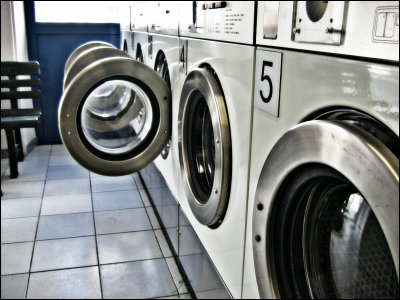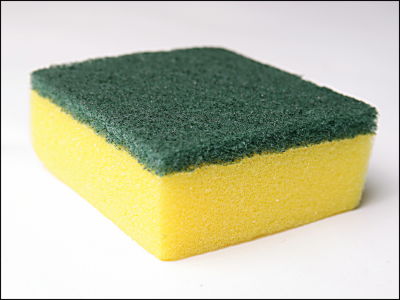Research results that the 'rinse' for the dishwasher left in the dishes destroys the intestinal barrier

Dishwashers are very convenient home appliances that reduce the burden of daily housework, and many people say that once they start using them, they can no longer return to hand washing. Such dishwashers may use a rinse agent (rinse agent/dry finish agent) to improve drying efficiency and clean the appearance after drying, but this rinse agent remains on the dishes and destroys the intestinal barrier. Studies have shown that it is dangerous.
Gut epithelial barrier damage caused by dishwasher detergents and rinse aids - Journal of Allergy and Clinical Immunology
Industrial dishwashers may harm your gut's protective inner lining
https://www.zmescience.com/medicine/industrial-dishwashers-may-harm-your-guts-protective-inner-lining/
A typical dishwasher uses a combination of hot water, detergent and mechanical action to clean dishes and utensils. First, high-temperature water is mixed with detergent and sprayed to remove the dirt stuck to the dishes. is the general trend.
At this time, the detergent used for washing is washed away during the rinsing process, but some dishwashers mix hot water and rinse aid during rinsing to improve drying efficiency and clean the appearance after drying. increase. Cezmi Akdis , a professor of medicine at the University of Zurich in Switzerland, said: ``The worry is that many appliances don't have an additional cleaning process to remove leftover rinse aid. It will dry out as it is,' he points out.

Therefore, the research team of Akdis et al. conducted an experiment to investigate the effects of dishwasher detergents and rinse agents when they reached the human gastrointestinal tract. The inner wall of the human intestine is covered with an
Experiments used human intestinal cells and intestinal organoids on microchips grown from intestinal cell cultures, and applied a variety of commercial detergents and rinse aids at dilution ratios derived from dishwasher water usage. evaluated for toxicity.
As a result, no toxicity to cells or the intestinal barrier was observed with detergent at a general dilution rate, but when the rinse agent was used in a large amount and the dilution rate was 1/10,000, it was found to be toxic to intestinal cells. was found to disrupt the intestinal barrier. The research team also reported that even when the dilution rate of the rinse agent was a low dose of 1/40,000, the intestinal barrier was adversely affected. In fact, the research team has also extracted the rinse agent remaining in the cup washed using a commercial dishwasher and confirmed that it is toxic to cells.
Alcohol ethoxylate , a type of surfactant, is believed to be the cause of the toxic effects of rinse aids. When cells were exposed to alcohol ethoxylates, inflammation-related genes and cell signaling proteins were activated.
'The effects we found are a sign that the dishwasher rinse aids disrupt the epithelial lining of the gut, which can trigger the development of many chronic diseases,' said Akdis. rice field.

Related Posts:







